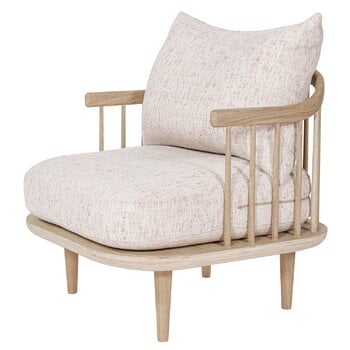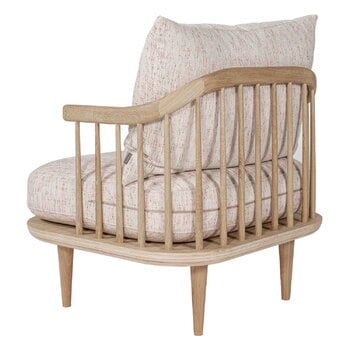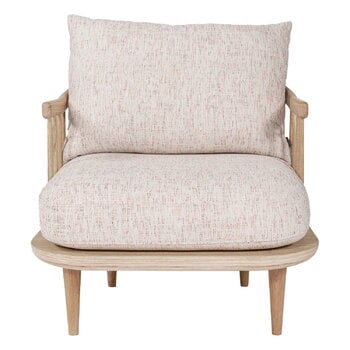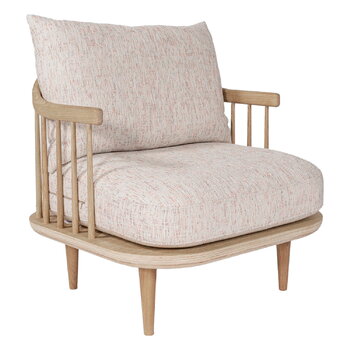&Tradition's Fly SC10 lounge chair represents familiar elements of the traditional Danish design, yet still manages to be something completely new. Designed by Space Copenhagen, the Fly lounge chair combines an elegantly shaped solid oak frame with soft, voluminous cushions that offer a perfect place for relaxing. The lightweight appearance and timeless feeling of the Fly collection make it well-suited for any modern interior.
Fly SC10 lounge chair, white oiled oak - Sonar3 113
&Tradition
Description
&Tradition's Fly SC10 lounge chair represents familiar elements of the traditional Danish design, yet still manages to be something completely new. Designed by Space Copenhagen, the Fly lounge chair combines an elegantly shaped solid oak frame with soft, voluminous cushions that offer a perfect place for relaxing. The lightweight appearance and timeless feeling of the Fly collection make it well-suited for any modern interior.
Product details (13)
- Colour
- Greyish beige, white oak
- Width
- 73 cm
- Depth
- 70 cm
- Height
- 70 cm
- Seat depth
- 54 cm
- Seat height
- 40 cm
- Frame material
- White oiled oak
- Seat cushion
-
HR foam and feather
pillows - Upholstery fabric
- Sonar 3 113: 59% new wool, 25% viscose, 9% linen, 5% nylon, 2% polyester
- Abrasion resistance
- 20,000 Martindale
- Pilling
- 3-4
- Lightfastness
- 7
- Weight
- 22 kg
- Product ID
Designer
Space Copenhagen is a design office founded by Signe Bindslev Henriksen and Peter Bundgaarden in 2005. They work with several kinds of design projects all the way from interior design to art installations.
View all productsReviews (0)
Sustainability
The Product Sustainability Framework, our criteria of sustainable design, helps you find the most sustainable products in our selection. Read below which sustainability criteria this product has met.
Working conditions & labour 8/9
-
Equal opportunities for all employees
-
Commitment to UN Global Compact, fair compensation for all employees
-
Corporate responsibility requirements defined and communicated for suppliers
-
Systematic work for improved inclusion and well-being in the workplace
-
Transparent supply chain
-
Suppliers' compliance to a code of conduct ensured
-
Direct suppliers audited and certified
-
Compliance to the UN Guiding Principles on Business and Human Rights ensured in the supply chain
Eco-friendly production 6/9
-
Fair and resource-wise water-use in production
-
No incineration or landfilling of returned items
-
No use of endangered species as materials
-
No direct environmental emissions or waste (excl. GHGs) from production
-
Material-efficient and ecological packaging
-
No potentially harmful chemicals used in own production
Climate impact 5/8
-
Company's direct greenhouse gas emissions identified and commitment to reduction
-
Product's carbon impact identified and commitment to reduction
-
Guidance on energy- and eco-efficient use of the product
-
Contribution to climate initiatives beyond the brand’s direct operations
-
100 % renewable energy in own production and operations
Sustainable materials 3/6
-
Sustainable and long-lasting material choices
-
No harmful or hazardous substances
-
Responsible raw material sourcing and production
Circular design 4/5
-
High aesthetic quality promoting long-term use of the product
-
Technically durable product design and material choices
-
Design for enduring life-long quality
-
Design and support for product maintenance, repair and upgradability













